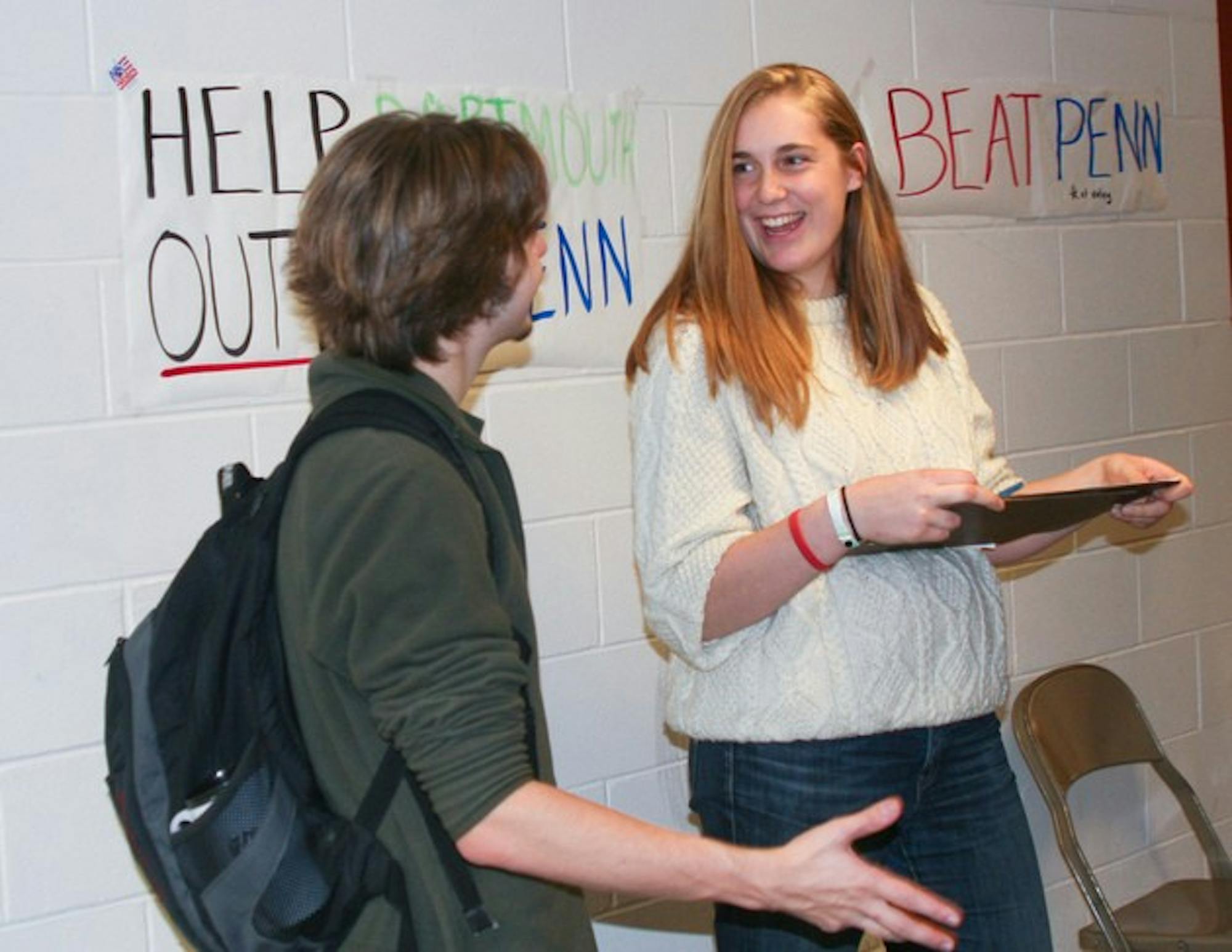As a result of the draw, Dartmouth Student Assembly President Molly Bode '09 and Penn's Undergraduate Assembly Chairman senior Wilson Tong will each wear the opposing school's paraphernalia. Dartmouth will buy a plaque to commemorate the 2008 elections and the College's high student voter turnout, according to Bode. The plaque will hang in the Collis Center. Penn is still finalizing their plans for a prize, Tong said.
Of the 3,388 Dartmouth students on campus and eligible to vote, 2,662, or 78.6 percent, showed up to the polls or cast absentee ballots, according to Justin Varilek '11, a member of Vote Clamantis and Student Assembly. Penn was not able to calculate their campus-wide participation because they couldn't obtain the necessary data.
"My assumption would be that it was higher [at Dartmouth]," Tong said.
The formula the assemblies had originally agreed upon, however, was the percentage of registered student voters who cast ballots in New Hampshire or Pennsylvania respectively, he said.
Of the 2,578 Dartmouth students who are registered to vote in New Hampshire, 2,268, or 88 percent, participated in the election, according to Varilek. The Daily Pennsylvanian reported that 3,011 out of 3,123, or 96.4 percent of Penn students living on campus who were registered to vote in Pennsylvania, cast ballots.
Both student leaders said they believe this was the highest voter turnout in their school's respective history.
"I don't think we've ever had an estimation or projection that high," Tong said.
While counting student voters, both schools faced challenges, such as how to handle absentee voters and ineligible voters, according to Bode.
"I think it also just shows how hard it is to tally votes," she said.
The schools also encountered different problems, however, due to differences in size and location. Dartmouth students presumably go to Hanover's sole poll located at Hanover High School, which allowed Vote Clamantis to record all local student voters. A significant portion of Penn's students live off campus, Tong said, which presented difficulties due to the number of polling sites throughout Philadelphia. Members of Penn Leads the Vote, a nonpartisan voter registration group, only recorded the number of Penn students who voted at the multiple on-campus polls.
Dartmouth was able to account for a significant number of absentee voters by sending out a campus-wide e-mail asking for the students' name and voting districts. Penn, however, could not use the same tactic, because students are not as responsive to e-mail, according to Tong.
Penn's inability to determine the exact number of registered student voters forced the undergraduate assembly to extrapolate based on voter trends from April's primary elections. Dartmouth was able to come up with a more accurate number of student voters registered in New Hampshire compared to Penn's projected number, Bode said. Both schools will have access to more accurate figures when the respective counties release more detailed data in two months, she said.
According to Tong, the purpose of the contest was to "inject some friendly competition into the election to make it more fun for people." While there is no way to measure how much of an effect the competition had on voters, Tong said, the competition gave Penn's undergraduate assembly "a larger role in educating students about the election process and getting students out there to vote."
Bode congratulated and commended both schools on their strong voter turnouts. Student Assembly will throw a celebratory Rock the Vote party, which will double as an alternative spaces party.
"I think overall it was a really great idea," Tong said.




